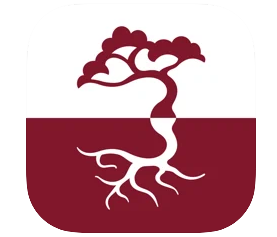Stress is an inevitable part of life. In TCM, stress affects the free flow of Qi within the body, resulting in stagnation, excessive internal Heat and poor Blood circulation. Excessive and prolonged stress may impede the delicate balance in our body and trigger severe health problems.
The most common manifestations of stress include sleeping disorders, anxiety disorders, headaches, fatigue, indigestion, restlessness, hypertension, acne, poor or excessive appetite, decrease in sexual ability, and a desire for sweets and dessert. In some cases, long-term stress can also lead to weight loss or weight gain problems.
Stress & Digestive Health
Stress tends to impede the flow of Qi, which would affect the Spleen's functions. Consequently, the transformation and transportation of digested food will be affected, and this will lead to an accumulation of internal dampness. In time, problems such as weight gain may develop.
Stress & Shoulder Tension
Shoulder tension is caused by factors ranging from continuous mechanical strain, a lack of exercise, improper posture while working or sleeping, and emotional stress.
When stress builds up and the Liver-Qi flow is impeded, the shoulder muscles will tighten and become rigid. Tension in the shoulders leads to shoulder pain, neck pain and even headaches.
General Treatment Principles and Tips for Stress-related Conditions
TCM is effective in relieving stress through acupuncture, herbal medicine and/or massage therapy. It is important to note that treatments must be customised according to each unique body constitution.
• Ensure the free flow of Liver-Qi
In TCM, the Liver helps to regulate our emotions. When the flow of Liver-Qi is interrupted, emotional disturbances such as depression, frustration, anger, mood swings may occur. Thus, it is important to ensure the smooth flow of Liver-Qi in the treatment of stress-related conditions.
For decades, TCM physicians have been prescribing Xiao Yao San (逍遥散), which is believed to have stress-relieving properties. The prescription comprises Hare’s Ear Root (Chaihu, 柴胡), Chinese Angelica (Danggui, 当归), Peppermint (Bohe, 薄荷), White Atractylodes (Baizhu, 白术) and Poria (Fuling, 茯苓).
Common herbs that promote the flow of Qi include Perilla Stem (Zisugeng 紫苏梗), Hawthorne Berry (Shanzha, 山楂), Lingzhi (灵芝), Cnidium (Chuanxiong, 川芎), Turmeric Root (Yujin, 郁金), Tangerine Peel (Chenpi, 陈皮) and Prepared Fleeceflower Root (Zhishouwu, 制首乌).
Tonics that contain Eucommia Bark (Duzhong, 杜仲), Glossy Privet Fruit (Nvzhenzi, 女贞子), Eclipta (Mohanlian, 墨旱莲), Black Sesame (Heizhima, 黑芝麻) and Himalayan Teasel Root (Xuduan, 续断) are useful for invigorating the Liver.
Acupuncture treatments may aid in re-energising our body circulation, particularly in the circulation of stagnant Liver-Qi.
• Eliminate internal Heat or fire
Late nights and irregular eating habits can put us under intense stress. The untreated stagnation of Liver-Qi will generate internal fire, which may travel upwards to the head region and disturb our sleeping process, suppress our appetite, or cause other disharmonies.
In these cases, treatments usually focus on clearing our internal fire to restore balance. Tian Wang Bu Xin Wan (天王补心丸) is one of the ancient prescriptions that can supplement the Yin and remove internal fire to relieve stress. Herbs such as Foxglove Root (Shengdi, 生地), Asparagus Root (Tiandong, 天冬), Chinese Magnoliavine Fruit (Wuweizi, 五味子), Chinese Gentian (Longdancao, 龙胆草), Salvia Root (Danshen, 丹参), Figwort Root (Xuanshen, 玄参) and Anemarrhena (Zhimu, 知母) help in clearing internal fire.
• Calm the Mind (Shen)
When the Mind is relaxed, the body will return to its harmonious state.
Acupuncture is one of the most effective treatments for stress. It helps by calming the Mind and relaxing the muscles.
Chinese herbs that also help to calm the Mind are Biota Seed (Baiziren, 柏子仁), Poria (Fuling, 茯苓), Oyster Shell (Muli, 牡蛎), Thinleaf Milkwort Root (Yuanzhi, 远志), Chinese Magnoliavine Fruit (Wuweizi, 五味子), American Ginseng (HuaQishen, 花旗参), Longan Fruit (Longyanrou, 龙眼肉) and Lily Bulb (Baihe, 百合).
• Nourish the Heart
In Huang Di Nei Jing (The Emperor's Inner Canon), the Heart is said to be the master of Zang-fu organs, the ruler of the Mind or spirit (Shen) and the seat of consciousness and intelligence. The health of the Heart affects the Shen and can in turn lead to emotional disturbances such as anxiety, insomnia and palpitations. Therefore, it is important to maintain Heart health to sustain emotional balance.
Biota Seeds is one of the Chinese herbs that nourishes the Heart. It is commonly used to treat insomnia accompanied by fidgetiness and palpitations, night sweating, as well as constipation. Other herbs that benefit the Heart’s functions include Longan Fruit (Longyanrou, 龙眼肉), Lotus Seeds (Lianzi, 莲子), Lotus Root (Lianou, 莲藕), Chinese Magnoliavine Fruit (Wuweizi, 五味子), Tortoise Carapace and Plastron (Guijia, 龟甲).
Heart Tonifying Soup (Yang Xin Tang, 养心汤) and Suan Zao Ren Tang (酸枣仁汤) are tonic soups that nourish the Heart, soothe the nerves and calm the Mind.
Acupuncture and massages on the head and foot may help to enhance the Heart’s functions too.
• Replenish the Blood to the Heart
Various ingredients can be added into our daily diet to replenish the Blood to the Heart, such as Lotus Seeds (Lianzi, 莲子), Lotus Root (Lianou, 莲藕), Lily Bulbs (Baihe, 百合), Longan Fruits (Longyanrou, 龙眼肉), Red Dates (Hongzhao, 红枣), Codonopsis Root (Dangshen, 党参), Chinese Angelica (Danggui, 当归) and Poria (Fuling, 茯苓).
• Exercise to improve Qi and Blood circulation
Exercise helps to unblock the flow of Qi and Blood, and minimise the effects of stress on our mind and body. Tai Chi, yoga, and other forms of exercise that focus on breathing and meditation also help to move Qi. These exercises also help in calming the Mind and promoting relaxation.




